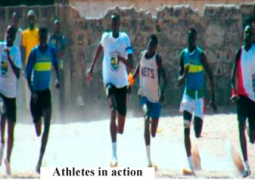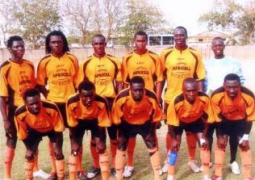As the week-long training on election reporting and coverage for Gambian journalists ahead of the forthcoming National Assembly elections draws to a close, editors from two newspapers and one online paper yesterday had an interface with reporters on the role of the media in covering and reporting elections.
The interactive interface brought together Baboucarr Senghore, editor-in-chief of The Point newspaper, Musa Sheriff, editor and publisher of The Voice newspaper and Abdoulie John of Jollof News.com, and availed both editors and reporters the opportunity to, among others, discuss and share experiences on how to cover and report elections.
For The Point’s chief editor, journalists should always let professionalism take precedence over prejudice in the coverage of any type of elections.
A good journalist, he said, must always transcend sentiments in the discharge of his or her duty, and must not stoop so low as to accept material gratification from politicians.
“As we get ready for the forthcoming polls, we must bend over backwards to ensure that the profession is not dragged through the mud, through accusations of biased reporting and coverage,” he told the participants.
Senghore insisted that it is not the job of a journalist, under any guise, to swing support for any political party, stressing that the role of the journalist is to present all contending views, opinions, positions, and platforms to the electorate so that they can make an informed choice.
Point editor Senghore believes that good journalists should also report elections in a non-partisan way, suppressing their own political views in order to allow the public to make up their minds solely on the basis of what the various candidates are offering.
However, he added, one of the main problems in election reporting is corruption, which, he added, is at the heart of poor election reporting in
He noted that as editors, they have a role to play in avoiding such problems, adding that planning is essential to effective election coverage.
“Elections bring politicians closer to media practitioners and, as a result, the image of the profession is profoundly tarnished with some insurmountable problems recorded in some cases,” he opined.
In his view, a bias journalist is a danger to society, as he or she can inflame tempers by publishing partisan reports.
He urged journalists to always learn to conceal their political affiliation, and stick at all times to objectivity and balance in their reporting.
Musa Sheriff of The Voice newspaper also underscored the need for journalists to always ensure professionalism, especially when it comes to election coverage and reporting.
According to Sheriff, journalists should always be ethical as this is the guiding principle when it comes to issues of elections.
Noting that a good reporter makes the job easy for his or her editor, The Voice’s editor tasked journalists to always endeavor to make sure that their stories are accurate, before going ahead with the publication.
Abdoulie John for his part highlighted the significance of online journalism in this age, noting that it has shaped the way in which many countries are governed.
Online media, he added, is now part and parcel of the Gambian media landscape, and thus urged journalists to make best use of the opportunities offered by online journalism.
Read Other Articles In Article (Archive)




